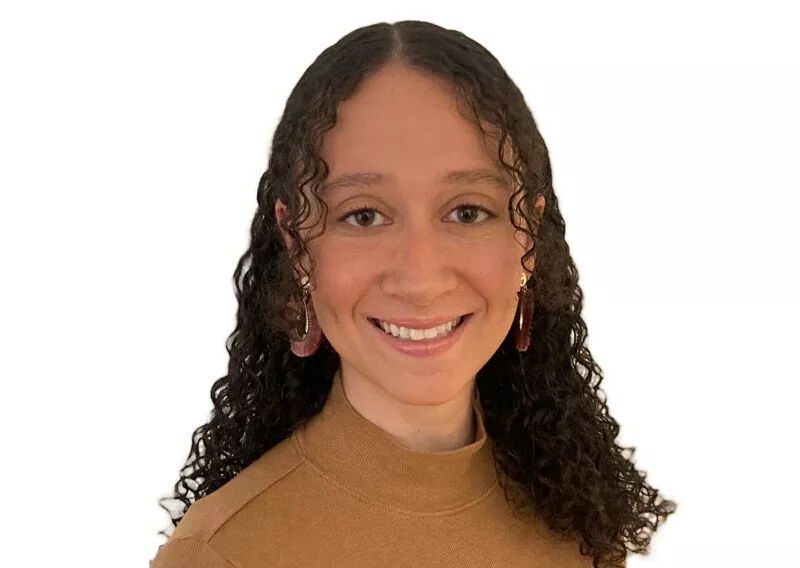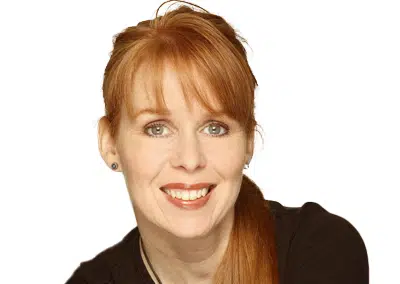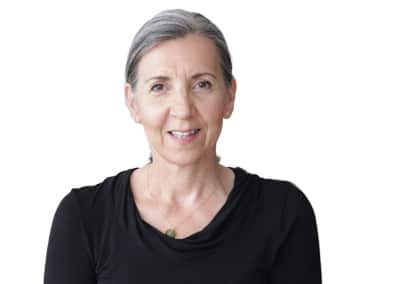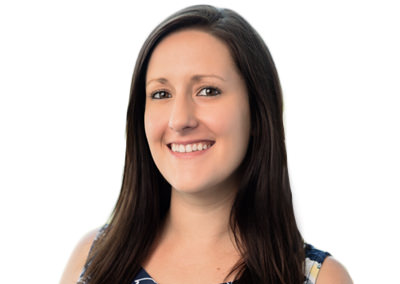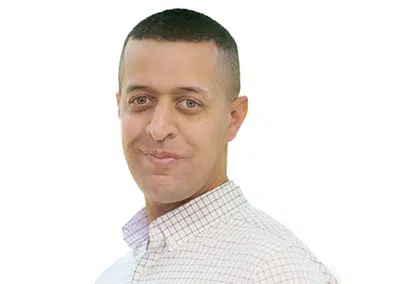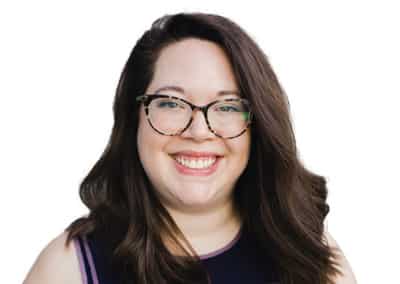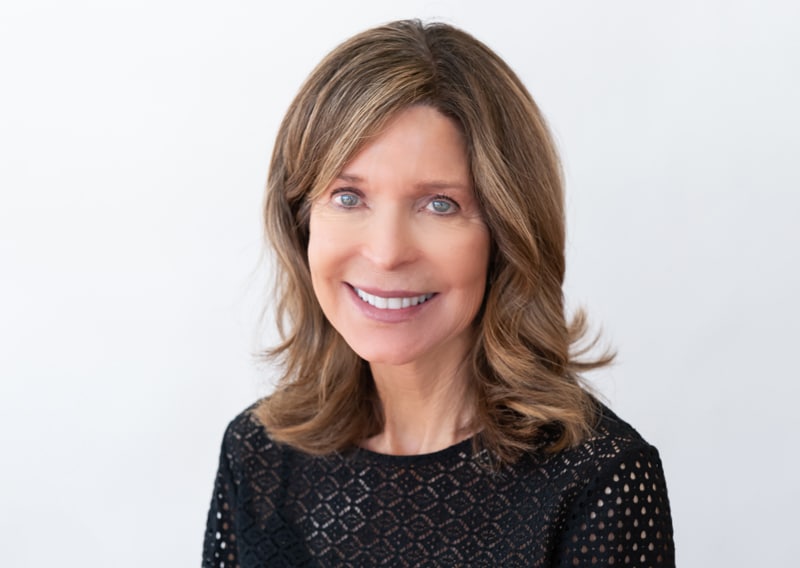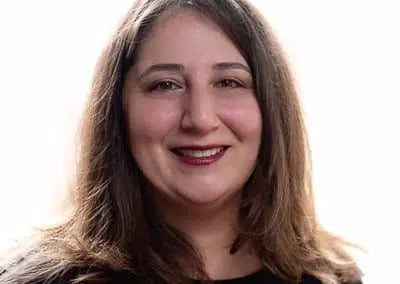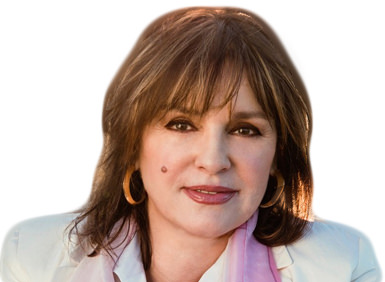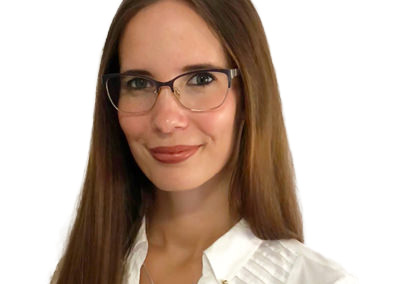
Dating Coaching Questions:
How to Find Love

Dr. Lisa Marie Bobby is a licensed psychologist, licensed marriage and family therapist, board-certified coach, AAMFT clinical supervisor, host of the Love, Happiness, and Success Podcast and founder of Growing Self.
Many people interested in our dating coach services here at Growing Self come to us with one real concern:
How to find love?
Real, true love. The kind that lasts forever.
While another online dating coach may take a narrower focus (perhaps getting right to work on optimizing your online dating profile), the Denver dating coach and online dating consultant services offered at Growing Self are provided by true relationship experts — couples and family therapists who specialize in healthy relationships.
We’re not here to help you create false chemistry or get an endless string of first dates. We’re here to help you learn how to find love – and create a healthy, happy, stable relationship with an amazing person you can build a life with.
In order to help you achieve your true goal – to find love – our approach to dating coaching is much more nuanced, and goes much deeper. Because our dating coaches are marriage and family therapists with extensive experience in helping people build strong relationships, we understand that your success in finding love goes far beyond what’s happening with your online dating profiles.
Helping you find love and create the type of relationship you want requires walking with you through all the stages of healthy relationship development — some of which begin way before you build confidence and connect with an attractive person.
How to Find True Love
Stages of Relationships
Finding true love is a quest. One question answered by dating coaching is understanding what healthy love feels like. Real love unfolds in stages, often over a long period of time. Generally speaking, finding love takes you through a number of different relationship phases, each containing different challenges and opportunities for growth.
Find Love // Stage 1: Working on Yourself
Here’s some honest advice from an online dating coach: The first stage of having a genuinely healthy relationship has nothing to do with anyone else; it’s all about you and working on yourself first.
Are you truly ready to believe you are worthy of love and respect? Can you love and be loved? If you’re still getting over a breakup or re-entering the dating pool after divorce, or can’t stop thinking about your Ex for example — or if you’ve been ghosted in dating, or have unresolved trust issues from a past toxic relationship, the answer might be, “Not yet.”
While this may not be what you want to hear, getting honest with yourself and facing reality fearlessly (and with the support of a good therapist and/or advice from a dating coach who can help you work through these obstacles to finding love productively) is the honest path forward.
Here’s why:
If you have “unfinished business” that’s influencing how you think, feel, or behave with people in the present, it will be difficult for you to manage new relationship anxiety and bring your “best self” to the table in new relationships.
Patterns and Pain Points
One of the first things the best dating coach helps you with (before you begin trying to meet new people)- is slowing down and taking a relationship history assessment of where you are currently – and where you’re coming from.
Taking the time to explore your relationship history is incredibly important and can be empowering, as well. To illuminate your patterns, core beliefs, expectations about yourself, and expectations about others, start by answering questions like:
- “What did you learn about behaving in relationships from your experiences in your family of origin?”
- “How do your romantic relationships usually start? How do they usually end?”
We all have our own unique attachment styles. Attachment styles are the ways in which we relate to other people; they are baked into the fabric of who we are. There is a spectrum of healthy attachment styles as well as some that aren’t so healthy. Bringing your signature relationship themes into the light helps you gain awareness of yourself and the impact you have on partners.
Understanding yourself compassionately, loving yourself, recognizing your patterns, and your pain points (and developing a solid plan to address them successfully) before you return to dating will exponentially increase your odds that when you do meet a great person… you’ll be ready.
Healthy Relationships
Nobody teaches us how to have healthy relationships. You’ll find no shortage of cliches, but real, valuable dating advice is not easy to come by. Actually, we all just absorb ideas and expectations about how to conduct our relationships from:
- Our experiences in our family of origin
- Movies and media
- What we see or hear about our friends doing
- Our own lived experiences in relationships
There’s no manual. We all just wing it and hope that we’re doing it “right.”
Most people only get formal “relationship education” either through premarital counseling (if they’re lucky enough to do really high quality premarital counseling prior to marriage) or if their relationship deteriorates to the point where they get involved with marriage counseling or couples therapy.
As an experienced marriage counselor, I can assure you: It’s much, much easier to develop and maintain a healthy, happy relationship than it is to try and fix a damaged relationship after the fact.
Working with an experienced relationship coach can help you identify your current relationship strengths as well as your growth opportunities. Proactively working on things like communication skills, emotional intelligence in relationships, healthy boundaries, constructive problem solving, and all the components that a strong relationship requires lays the foundation for the wonderful relationship you’d like to have in the future.
Self Love
The idea that we must “love ourselves before we can love anyone else” is trite and not entirely true. It is true, however, that in order to have a genuinely healthy, stable, long-term relationship you need to be in a generally good place with yourself first. For example, if you are seeking to fill up your emotional cup from someone else’s faucet, you’re setting yourself up for a difficult, disappointing experience.
It is true that we can love other people more than we love ourselves; many a parent has done this for their kids, throwing them over the wall at the expense of themselves. This kind of love can be heroic. It is also true that most people are better, stronger, and healthier because of their relationships. The notion that you need to be perfectly fine and in love with everything about yourself and your life before you get into a relationship adds false and unrealistic pressure for people.
However, if you struggle to manage your emotions or “need” a romantic partner to treat you a certain way in order for you to feel secure or good about yourself… that’s not going to end well. Relationships explode (or wither) when people who don’t have a good relationship with themselves attempt to have relationships with other people.
Learning how to manage yourself and your emotions from within allows you to have the strong, secure, and mutually satisfying long-term relationship that you want.
Let’s Talk.
Schedule a Free Consultation Today.
Find Love // Stage 2: Getting Clear About What You Want
Once you’ve done some personal growth work, like learning how to be more vulnerable in relationships and are feeling ready to stop being single and find a healthy new relationship, it’s time to shift the focus away from yourself and start thinking about finding the right person. i.e., Your ideal partner.
Values-Based Hopes and Goals
First of all, what do you want? Not just in a relationship, but in terms of the big picture for your life? What is your ideal reality in five, ten or even twenty years from now? This type of discovery process and values clarification is similar to what a great career coach does in holistic career counseling.
A good dating coach can help you bring that ideal life into focus, and then talk about the kind of relationship that is congruent with that vision. Not all people want the same things out of life, and that’s okay. Some people want to get married and build a life with a house, kids, dog, etc. Some people genuinely like the thrill of office flings that bring intense pleasure for a little while.
But in order to have the kind of relationship experience that is congruent with what’s most important to you, you do need to know what you want. Only then can you intentionally set about building the type of relationship with the type of person who will thrive in your ideal future.
For example, if your self-exploration process uncovers a dream to be a location-independent, child-free tech nomad for the rest of your life, you should NOT pursue a relationship with someone whose life’s dream is to be a dairy farmer with a large family. This type of relationship compatibility pairing is going to be intrinsically challenging unless you are incredibly creative and can figure out a way to make both these life dreams come true.
You get the point: Not everyone is going to be interested in going down the path you’d like to go down. While the myth of “compatibility” is largely false, it is true that if your goal is to create a mutually satisfying and enduring long-term partnership where you don’t lose yourself in a relationship, going in the same general direction is important. And how can you know whether or not you’re going in the same direction as someone if you don’t have clarity about your own hopes and dreams first?
Your Ideal Partner
Once you have clarity about your big picture goals, a good dating coach can help you get more clear about who your ideal partner is so that you can date more intentionally. Not on a superficial level, but on a core-value and personality level. Identifying what types of character traits and personality features you’d like to have in a partner can help set you up for success.
Understanding these things helps you not just in finding that person, but in helping answer important questions like:
- What is my ideal partner looking for in a partner?
- And: How can I be a good partner for them?
Find Love // Stage 3: Connecting & Evaluating
The Process of Dating
This stage of how to find love — the part where you’re seeking to find and connect with a great partner — is often what we think of as “dating.” This is where garden-variety “dating coaching” often starts and stops.
Most basic dating coaches seek to help people in this specific area by improving the way they present themselves to prospective partners through online dating apps, or through networking or social opportunities. And there’s a lot to this.
Image management is certainly one important aspect of connecting with a prospective partner. The initial stages of how we show up with new people often sets the tone for the entire relationship. How do you communicate with someone you’re just getting to know? What about first dates do’s and don’ts? What do you wear? What do you say? Should you have sex on the first date? What do you do to increase chemistry and attraction? And what should you not do that might turn someone off?
But equally important to learning how to present yourself well enough to increase the odds that someone you like is going to like you back, is learning how to tell the difference between someone who’s going to be a good partner for you (and vice versa) from someone who’s not a good fit.
One of the biggest obstacles to finding true love is getting connected too quickly with someone who’s not your long term person. It’s easy to develop an emotional bond to someone — even in a toxic relationship addiction situation. How you feel about someone is not necessarily a good indication of whether the relationship will be healthy for you. More on chemistry in relationships here, if you’re interested.
Dating is like holding auditions. But the process of dating with intention can be complex and confusing. Working with a good Denver dating coach or online dating coach and preparing yourself well in advance of when actual dates start to happen is the best way to ensure that you’ll have the clarity and confidence to be able to handle all of these situations as they come up. But a good dating coach will also walk with you as you grapple with every one of these dilemmas about the new rules for dating and of finding love.
But dating is not where finding love ends — not by a long shot. Learning how to date with clarity and intention is just the third chapter of a long novel. If your goal is finding true love, there’s much, much more ahead.
Find Love // Stage 4: Building a Healthy Relationship
How to Be a Good Partner
Many people who want to find love feel so excited when they’ve connected with a great person who seems to like them too. It’s exhilarating! And, as you begin the process of discovering if you’re compatible, and getting to know each other better, you finally have the opportunity to put some of those new-and-improved relationship skills to the test.
How do you get to know someone authentically and develop emotional intimacy? How do you deal with your own personal trust issues, relationship anxiety or attachment styles? How do you communicate? How do you listen? Do you have a tendency to get defensive and invalidate feelings? Are you emotionally intelligent? How do you respond with empathy when your new partner is upset? (Especially when they’re upset with you?) How do you show them who you are, and begin the process of a mutual unfolding that honors and respects who both of you are — and what you’re each looking for in a long term relationship?
There is a lot here. It’s very easy to become so focused on whether or not we’re getting our needs met in a relationship that we can forget to consider how our interpersonal style may be impacting others.
Additionally, how can you tell if — over the course of getting to know someone — that they’re probably not going to be a good long-term partner for you, or vice versa? Liking someone, or seeing the potential in someone, is not enough. Having sexual chemistry or common interests is not enough, either.
Feeling attracted, or even infatuated with a new person can often obscure other, very important truths about a relationship. Are they trustworthy? Are they emotionally safe? Working with a good dating coach can help you stay clear about what you want and determine with confidence whether or not someone you are dating is compatible with your long-term hopes, goals, and desires.
Building a Healthy New Relationship
If you’re getting green lights as you get to know someone over time, you have the chance to begin building a genuinely healthy relationship with them. How do you respond to them? How do they respond to you? How do they show love and respect? How do you show love and respect? When you have different points of view or different ways of approaching situations, how do you work through that? When one of you has had a stressful day, how do you support each other? What is it like to plan things together?
Let’s Talk.
Schedule a Free Consultation Today.
Find Love // Stage 5: Emotional Intimacy & Commitment
Getting to Know Each Other (For Real)
Everyone is on their best behavior in the early stages of a brand new relationship. It’s only over time that people relax enough to be authentic to the degree that you have the opportunity to get to know who they really are.
Character is revealed over time and often, under stress. As the months and even years flow by, you will have the chance to get to know each other on a deeper and more authentic level. Who is this person around their parents? What happens when they bring their kids into the picture? What changes about your dynamic when you move in together?
Couples often find that, as their relationship progresses and the haze of infatuation fades into attachment, things they thought were true about each other in the beginning don’t tell the whole story. There are quirks and differences and preferences that need to be dealt with. That’s okay.
It’s normal. It takes a long time to get to know each other. As your relationship begins to evolve into a longer term partnership you will have many new opportunities to get to know different aspects of each other’s personalities, histories, and more. There can be some turbulence as you work through these together. A good relationship coach can help you navigate them successfully.
Love and Acceptance
You deserve to be loved for who and what you are, too. You deserve to be appreciated for all the beautiful things about you. Your perspective deserves to be understood and respected. There needs to be space for your needs, rights, and feelings in a relationship. It’s true for you and it’s true for your partner, too.
Unfortunately, in this stage of a relationship, many couples begin arguing and having conflict around what they feel the other person should be doing differently — especially around how they express love and respect. If people are feeling resentful or neglected, emotional distance and disconnection can creep in. A huge area of growth for many couples is learning how to be emotionally connected, emotionally supportive, and satisfying partners for each other – day in and day out.
Anyone who’s in a genuinely happy, successful long-term relationship or marriage will tell you that the secret to creating such a miraculous thing does not come from both of your efforts to change or be different. Finding true love means loving and appreciating your partner for who and what they are.
Healthy, successful marriages will always have aspects to them that are not ideal — but they have many other parts that are wonderful. Marriage and family therapist and researcher Dr. John Gottman estimates that 60% or more of the “relationship issues” that couples find distressing are actually related to “unsolvable problems.” This means that the path to happiness and love is not trying to solve or change them. Instead, the key is learning how to emphasize and feel appreciation and gratitude for the strengths of your relationship, and genuine love for your partner — as they actually are.
Many couples can benefit from the support of a really good relationship coach or even a couples therapist (especially one that uses evidence-based approaches) as they grapple with these questions. But if you have done much of this pre-work through successful dating coaching prior to the start of your relationship (or through meaningful premarital counseling), you’ll have a strong relationship-skills tool box that you’ll have been using this whole time, which may help prevent you from ever having to go through this challenging (but common) relationship stage.
From Me to We: Creating a Shared Future
As you get to know each other more authentically and work through the normal and expected differences that come up in every relationship, you may reach a point where you’re feeling confident that you’ve found love. But now the relationship questions start:
- How do you make the transition from dating each other to being a committed couple?
- When is it time to get married?
- What questions should you be asking before you get married?
- How do you develop relationship goals for your shared future?
- Or do you have different goals for your respective futures? If so, what is the middle path of attaining them for both of you in the context of this relationship?
In addition to dealing with macro, big picture relationship questions, there are more practical issues that couples committing to each other need to work through. Like, “Do we combine our finances?” “Are we ready to have kids?” and “Where do we want to live?” Many couples (even happy, successful couples) do not have perfect alignment in all of these areas right off the bat. Working with an experienced relationship coach can help you have constructive conversations to create congruence and alignment about your path forward, together.
Find Love // Stage 6: Growing, Together
Navigating Life Transitions
When you’re dating, it’s easy to think about getting married as achieving the goal or crossing the finish line. But in many ways, this is where the real adventure begins.
As people grow and evolve into different developmental stages of life, this impacts their relationships. For example, a challenging (exciting and wonderful, but challenging) life transition for many couples happens when they become parents.
Many of the things that their relationship was built around previously no longer apply. Consider the life experience of a young dating couple (music festivals! parties! ski trips! beach vacations!) This is so unlike the life experience of a married couple with a toddler or two as to be laughable. As they grow and transition into the next chapter of life couples have a lot of work to do — as people, and as partners. They have to get much more serious about who-does-what around the house, and even things as intrinsic as deeply=held values might change once kids come into the picture.
Another common life transition can occur for couples around career moves that impact their relationships. For example, if someone decides to go back to school, or go down a different career path that’s more time consuming or stressful, it can really change the dynamics of a relationship.
Similarly, going through painful life transitions such as the loss of a parent, a health issue or illness, infertility, having to live long distance, or dealing with a relocation to a different city can put major stressors on a relationship.
This is not a bad thing. Yes, the old life you shared together isn’t the same, and you have to figure out a new one. But it can also be a really good thing. During life transitions couples get the chance to reshuffle the deck and reinvent themselves and their shared lives. Life transitions present opportunities to have renewed conversations about what matters to each of you now, and how you’re going to work together and be good partners for each other in this new context.
Working with a good relationship coach can help you both get clarity about what you want this new chapter to look like for both of you, and how you can create a new shared vision together.
Also, I’d like to humbly submit that it would be helpful to you to be thinking about these things in the back of your mind as you are dating and looking for love. It’s essential that when you are dating, you are looking for someone with the character and emotional maturity to be a solid partner when life gets hard.
When we’re dating, it’s easy to get excited about someone who looks great in a dress or who is a magnetic storyteller with a fast car. But this is the person you’ll be depending on to get up with the baby at 3am, the person you’ll come home to after the gut-punch of getting laid off from your job, and the one who will sit with you in the hospital when your mother is dying.
In the end, true love is not a feeling. It’s a fundamental commitment to the wellbeing of another. Character matters a lot more than chemistry, to all of us, in the end.
Learning and Growing Together
Another thing to think about (and expect) on the journey of finding true love is the concept of growth and evolution. You may be thinking that once you have all these questions sorted out and you’ve found someone who’s great, and you’re cruising along together into your shared future, nimbly navigating one transition after another… that this is the end of the journey. You’ve arrived!
Actually, no. Sorry. I say this both as a marriage counselor and someone who, at the time of this writing, is coming up on nearly thirty years of being in a relationship with the same person….. But he’s not actually the same person. Neither am I. All the things that we learned about each other and figured out in the nineties are not even remotely true anymore. We had to do that all over again in the aughts, and in the 2010s, and even more recently, too.
I met my husband when I was in college — still basically a teenager. We were both kids. Now I’m a grown woman in my forties. I’m a shrink. A mom. The things that were important to me — heck, even my personality — are so different that they’re almost irrelevant. Same with him. (Except that he’s still interesting and funny, and has a solid gold character, thankfully).
Evolving People in a Vibrant Relationship
Being in a strong, happy long-term relationship means having to get to know each other over and over again as you both grow and evolve. You have to course-correct. The things that used to work stop working. There are new circumstances, new interests, and new people in your lives.
The person you married or partnered with so long ago chose you because you were their ideal partner then, and vice versa. You will both have to grow and evolve in response to each other as these things change over time. You’re going to go through hard things together, as well as peak experiences. That’s what it means to be in a vibrant, ever evolving partnership. It’s challenging, but it’s exciting too.
So working with a good dating coach on the front end can help you get clarity about who you are, and how to make good choices. As your relationship grows, there are other opportunities to get high quality professional support for your relationship: premarital counseling, relationship coaching through life transitions, parenting coaching, and more.
Just like people get educations to learn, or work with financial advisors, realtors, trainers when they need assistance, people who care about their relationships invest in them, and take care of them by seeking out growth and learning opportunities with relationship experts. Having a good relationship coach by your side as you continue to figure out who you are, who they are, and what you’re doing together is a huge help in ensuring that you create a lifetime of love.
That’s how you find love, my friends. I hope that this overview of the stages of relationships helps you understand what to expect in both the short term and the long term, and how to make informed and intentional decisions if you’re at a crossroads. If you’d like to speak with one of our relationship experts at any point along the way the door is always open — we’re all here for you.
Your partner in growth,

Dr. Lisa Marie Bobby is a licensed psychologist, licensed marriage and family therapist, board-certified coach, AAMFT clinical supervisor, host of the Love, Happiness, and Success Podcast and founder of Growing Self.
Meet a Few of Our Expert Dating Coaches
Dating Coaching Questions
How To Find Love
Great relationships are created intentionally, and they go through stages. Learn how to find love that lasts.
Do You Need a Dating Coach?
Do you need a dating coach, or dating consultant? Learn the top signs you might keep spinning your wheels without one…
What is a Dating Coach?
Learn about what a dating coach is, and how they help you build a happy new relationship.
The Best Dating Coach
The best dating coaches are true relationship specialists: but finding them can be a challenge. Here’s how to find the best dating coach, for you.
How Much Are Dating Coaches?
If your goal is finding The One to build a life with, a good dating coach is priceless. At Growing Self, it’s also affordable. Learn how much a dating coach costs.
Gift Dating Coaching
If you care about someone who could use support in learning how to date with intention and confidence, you can “gift” dating coaching sessions. Here’s how…
Denver Dating Coach
We offer expert relationship coaching and therapy to help you grow, love, and be loved. You can have the healthy relationship you deserve. Learn about working with a Denver dating coach.
Online Dating Coach
We can help you create true love. Build confidence, self-awareness, and an enduring relationship with the one you’ve been looking for. Learn about our online dating coach services.
Online Dating Class
Get clarity, confidence, and a solid plan to find and connect with your person. You can learn the art and science of successful modern dating in our self-paced “Find The One” online dating class.
Dating Advice
Get dating advice in The Dating Collection on our blog, and through the Love, Happiness, & Success Podcast.
More Questions? Let’s Talk.
If you have more questions about our dating coaching services, we’re happy to chat by phone, email, or text. Get in touch, anytime.
Start Dating Coaching
Ready to partner with a Growing Self dating coach? Book a free consultation with the coach of your choice. Start here.





